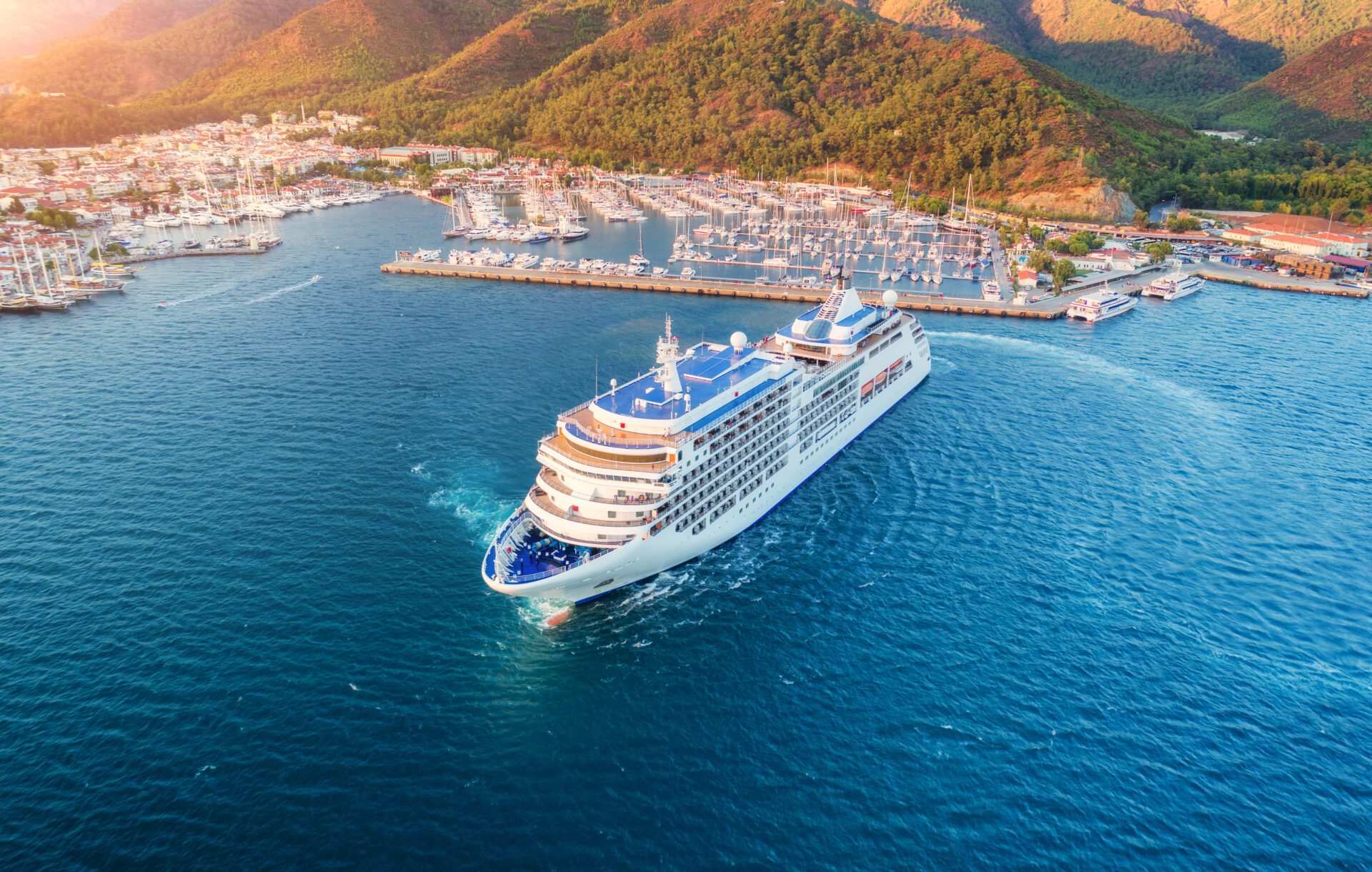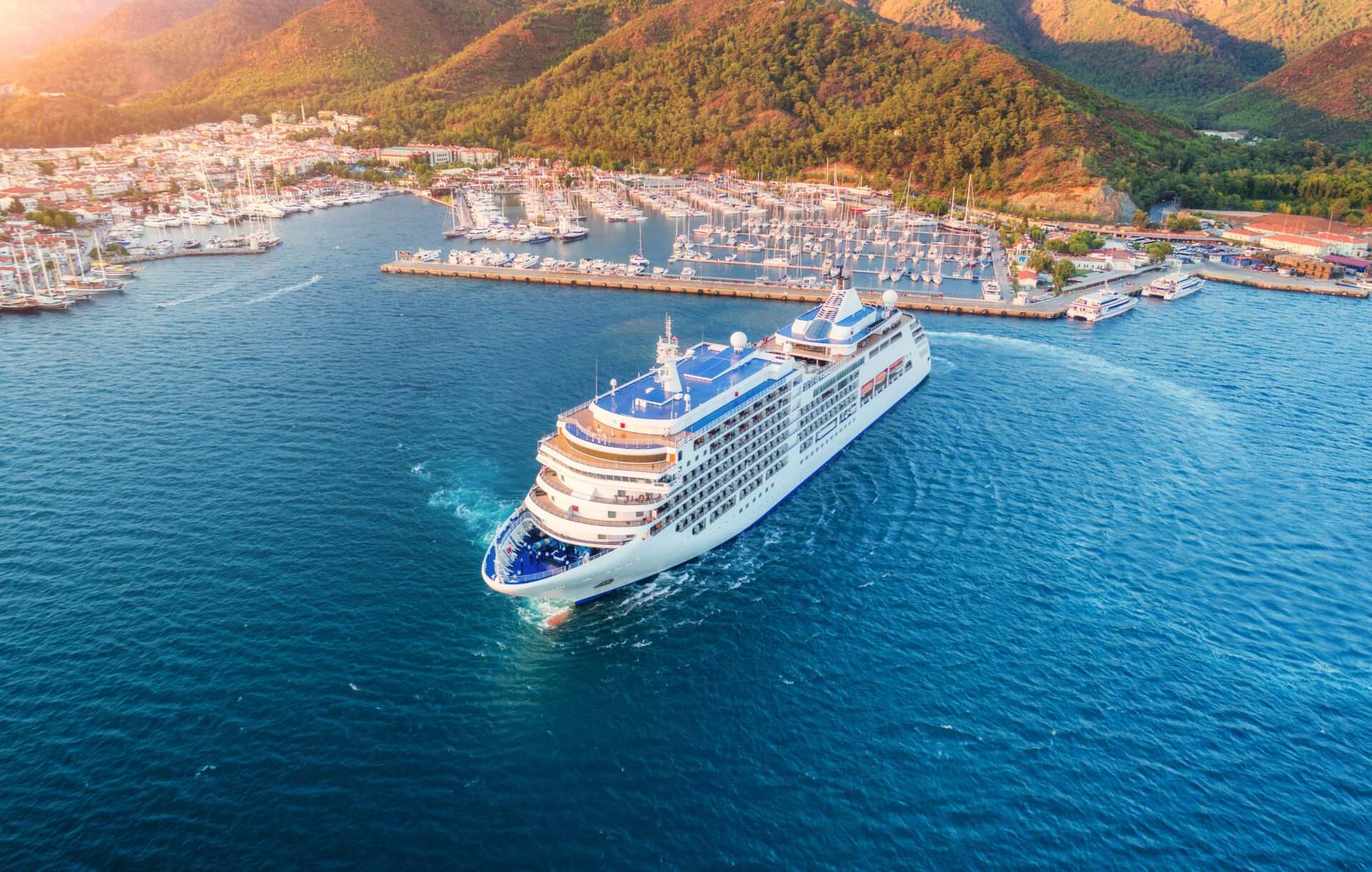The cruise industry has a sustainability challenge. Emissions from cruise ships at congested ports can be a contributing cause of air pollution that poses a health threat to the local communities for port cities.
Last month, I participated in a high-level live panel session titled “Spotlight on Sustainability” at Seatrade Cruise Global in Miami to discuss strategies and best practices to counter sustainability challenges in the cruise sector.
The first step is to avoid port congestion in the first place. It sounds simplistic but it is not a straightforward task, so how can it be achieved on a global scale? In essence, the solution points towards better deployment planning on a worldwide scale, rather than greater port capacity, as there is no shortage of cruise destinations worldwide.
There are currently around 434 cruise ships operating globally divided into 4 ship segments (Mega, Discovery, Luxury and Expedition) with on average a forecasted 20 new vessels coming into service each year, while there are 4500 ports, based on data from the WORLD OF PORTS website, and this number can run into tens of thousands when all available harbours, marinas, piers, jetties and other types of destinations are included.
Rather than framing the cruise industry with a port congestion challenge, in actual fact we collectively face a deployment problem, that can be remedied through creative itinerary planning orientated by segment, realistic destination capacity limits (vessel and people limits), enhanced collaboration between the Cruise Lines and destinations and overall greater usage of the wide diversity of destinations available globally to avoid multiple ships calling to the same port, on the same day during the same season. There is a plethora of places for cruise ships to visit, although many of these places need to be developed to be able to receive cruise ships in a sustainable way.


By means of illustration, there are over 17,500 islands in Indonesia, from which there are around 2000 initial locations a ship can call. Yet in 2019 the total number of cruise passengers amounted to little over 400,000. This is about half the number of one busy Mediterranean port in the same year that receives hundreds of cruise ship calls annually.
We need to tangibly ensure that we have the right type (segment) of cruise ship in the right port or location and that everything is managed in a sustainable way by means of a collaboration between the destination and the cruise operator. Destinations must determine their absolute tourism and berthing carrying capacity and cap passengers and vessel calls as part of a wider sustainable development plan.
The Seychelles currently limits cruise ships to 300 and under passengers to protect the integrity of its island destinations. This is part of a wider sustainable development plan called the “Vanilla Islands Sustainable Cruise Tourism Strategy” whereby Inchcape consulted the Indian Ocean’s Vanilla Islands that encompasses 6 that territories (Reunion, Mauritius, Seychelles, Madagascar, Mayotte and Comoros) and 12 cruise ports.
Shorter-distance cruise itineraries known as “Low Milage Cruising” also has the potential to contribute towards significantly reducing the impact of exhaust emissions. For example, in the South Aegean there are 75 islands, yet only 5 or 6 islands are used to any great extent, where over-tourism is a concern. By deploying ships according to suitability and cruise segment to a wider pool of islands, it offers opportunities to lower mileage and considerably reduce the impact of Over-Tourism in the over-used islands by spreading the business and placing capacity limits.
After recently visiting 30 ports in 30 Aegean islands in 30 days (all by Ferry), I learned that the mayors of each respective under-utilised (for cruise) island destination desired to embrace cruise tourism and build the necessary conditions for cruise to flourish in a sustainable way. Some islands are even considering going all-electric, using renewable energy and using electric only vehicles for passenger shore excursions.
We, at Inchcape Shipping Services, are seeking to support the South Aegean region to develop a new homeport, which will further support low milage cruising and I am personally planning to add a sustainability element to the “Cruise Guide Training” course I developed back in 2008, which was endorsed by the WFTGA (World Federation of Tourist Guide Associations).
Backed by Inchcape’s global network of expertise, we are committed to promoting more sustainable operations for the cruise industry through a wide range of services, including cruise and tourism consultancy, cruise itinerary management, cruise charters and innovative shore excursions. If you want to learn more, please reach out to me at GRANT.HOLMES@ISS-SHIPPING.COM.